Welcome to our detailed guide on employment probationary period stipulations! Understanding these crucial elements can pave the way for a smoother transition into your new role. We'll explore the importance of clearly defined expectations, assessment criteria, and feedback processes during this time. So, if you're ready to delve deeper into navigating these stipulations, keep reading!
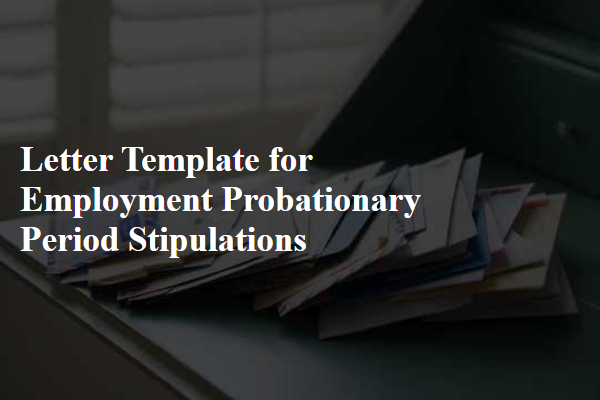
Duration of Probationary Period
The duration of the probationary period typically spans three to six months, depending on the specific policies of the organization or company, and is implemented as an initial evaluation phase for new employees. During this timeframe, an employer assesses the employee's ability to meet job performance expectations and cultural fit within the team. Regular evaluations, often conducted at monthly intervals, provide opportunities for feedback on performance metrics, such as productivity levels and adherence to company protocols. At the conclusion of the probationary period, a formal review meeting takes place to discuss potential outcomes, including confirmation of employment, extension of the probation, or termination if necessary. This structured approach ensures both parties have clarity regarding work expectations and overall job satisfaction.
Performance Evaluation Criteria
The performance evaluation criteria during the employment probationary period play a crucial role in assessing an employee's effectiveness in fulfilling job responsibilities. Key metrics for evaluation include punctuality, adherence to deadlines, quality of work (measured through error rates or customer feedback), and teamwork (reflected in collaboration with colleagues and participation in team projects). Specific goals must be established within the first month, providing a clear road map for performance expectations, including the completion of onboarding tasks and participation in training sessions. Regular check-ins (at least bi-weekly) offer opportunities for constructive feedback and goal adjustments. At the conclusion of the probationary period, usually spanning three to six months, a comprehensive review will determine whether the employee meets the outlined standards for continued employment or requires additional support and training.
Employment Terms and Conditions
During the employment probationary period, employees are expected to adhere to specific terms and conditions that assess their performance and compatibility within the organization. This period typically lasts three to six months, depending on company policy. Key responsibilities include punctuality, task completion, and adherence to workplace standards as outlined in the employee handbook. Regular performance evaluations will occur, providing feedback on strengths and areas for improvement. Successful completion of the probation may lead to continued employment and full benefits eligibility. It is crucial for employees to regularly communicate with supervisors to address any concerns and demonstrate progress in meeting job expectations.
Termination and Extension Policies
During the employment probationary period, typically lasting three to six months for new hires, specific termination and extension policies govern employee evaluation and retention. Termination may occur when performance metrics, set during orientation, are not met; these metrics often include punctuality, task completion rates, and behavior standards as defined in the employee handbook. An evaluation meeting, usually scheduled one month prior to the probation period's end, will assess progress and potential for continued employment. If performance remains unsatisfactory, a formal notification may occur at this meeting, resulting in termination with appropriate notice as per labor regulations. Conversely, if an employee shows promise but requires more time to meet set expectations, an extension of the probationary period, which can be up to three months, may be granted. This decision typically involves consultation between the department manager and human resources, ensuring clear communication of expectations for the extended period.
Confidentiality and Non-Disclosure Obligations
During the employment probationary period, adherence to confidentiality and non-disclosure obligations is critical. Employees must recognize that proprietary information, which includes trade secrets, client lists, and internal reports generated within the organization, is strictly confidential. Violations of confidentiality can lead to severe repercussions, both legally and in terms of employment status. The confidentiality of sensitive data protects the competitive integrity of the company, particularly in industries such as technology and finance where innovation and client trust are paramount. Failure to comply with these obligations, including unauthorized sharing through digital communication platforms, could result in immediate termination or legal action. The probationary period serves as an evaluation phase for both parties, and maintaining the integrity of confidential information is non-negotiable.

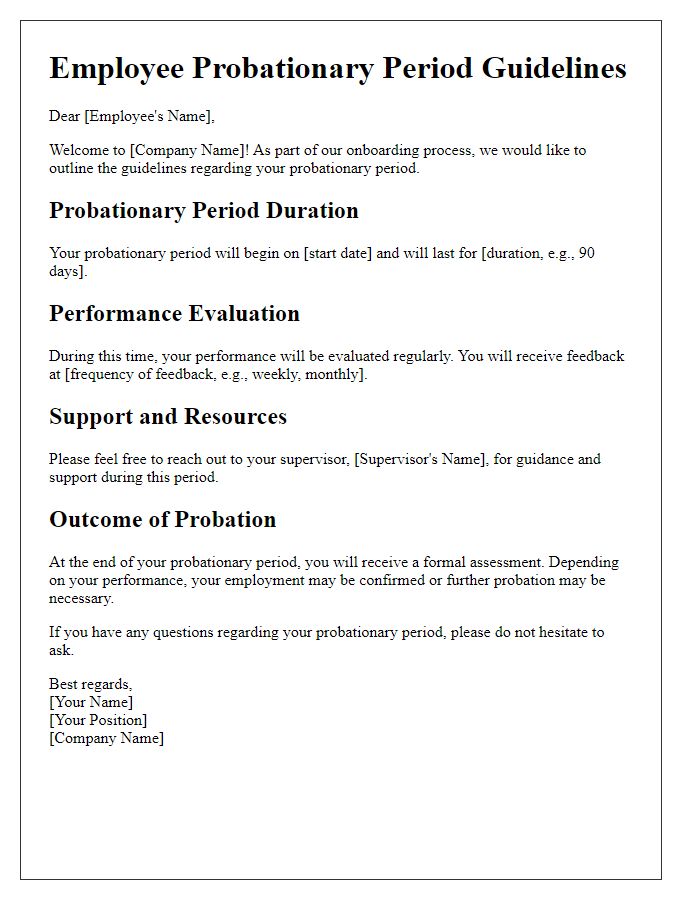
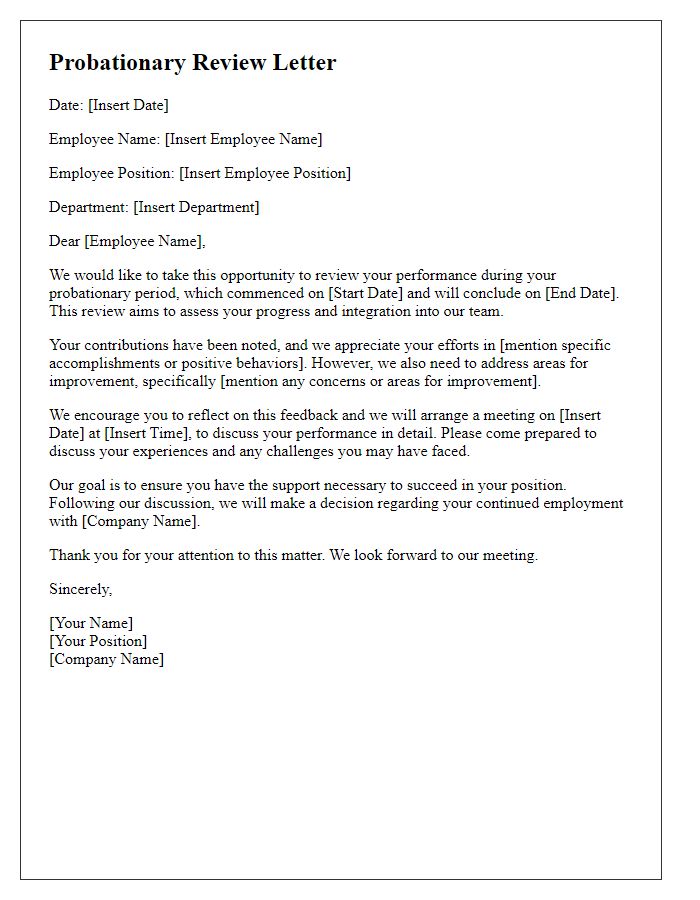
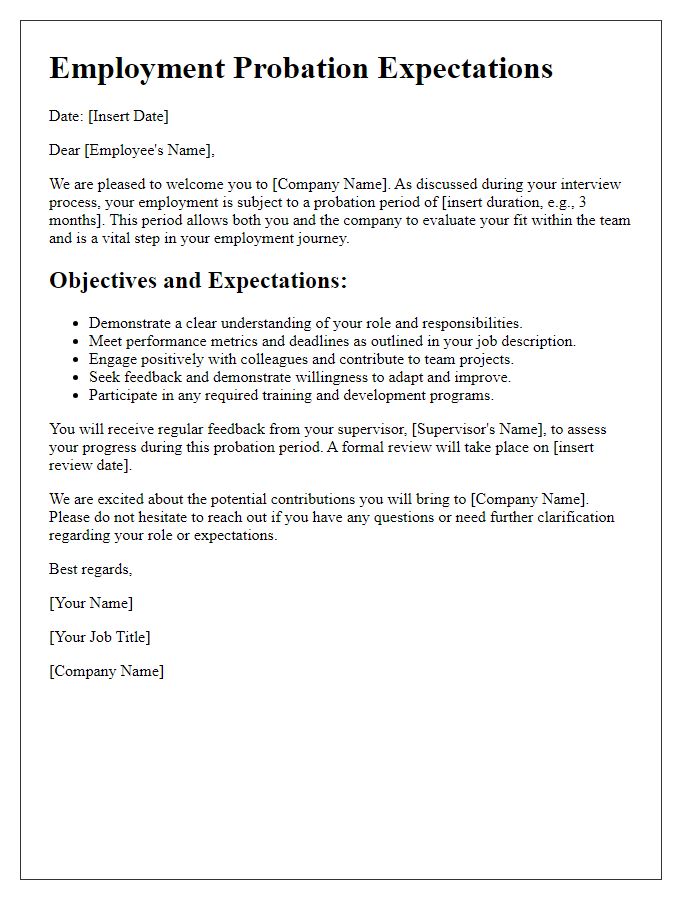
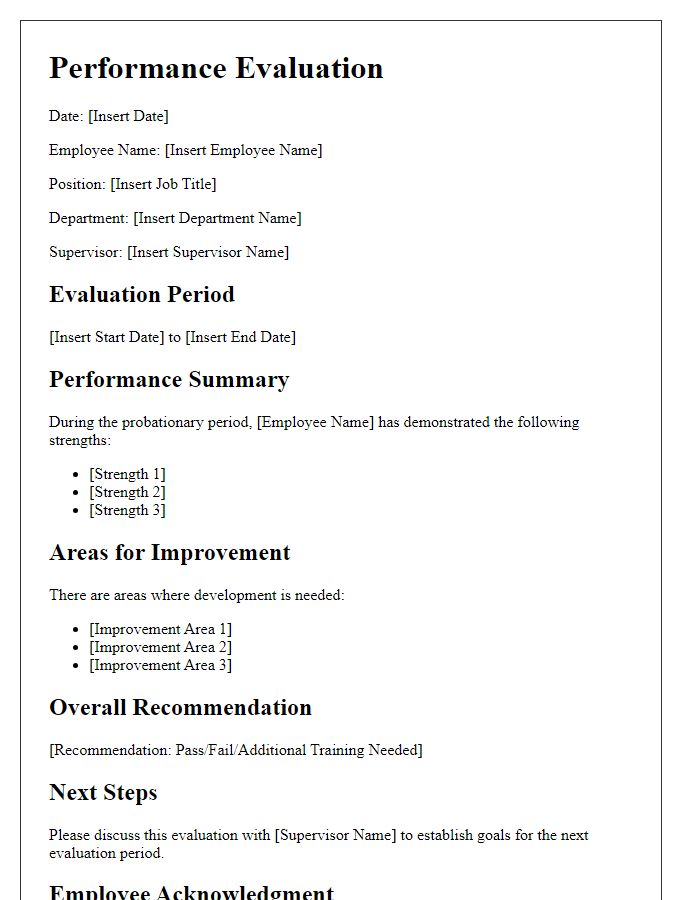
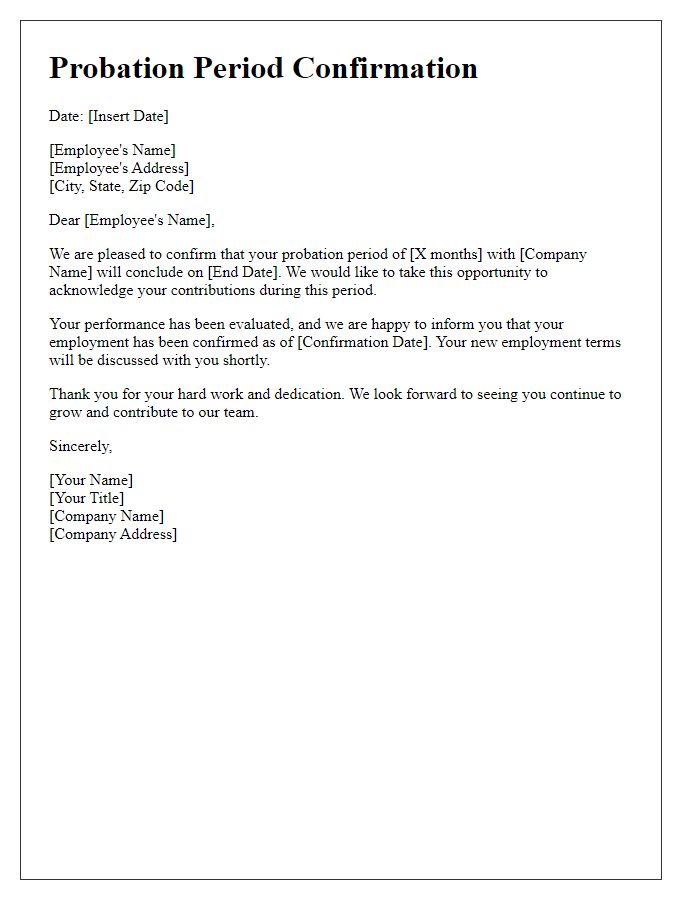
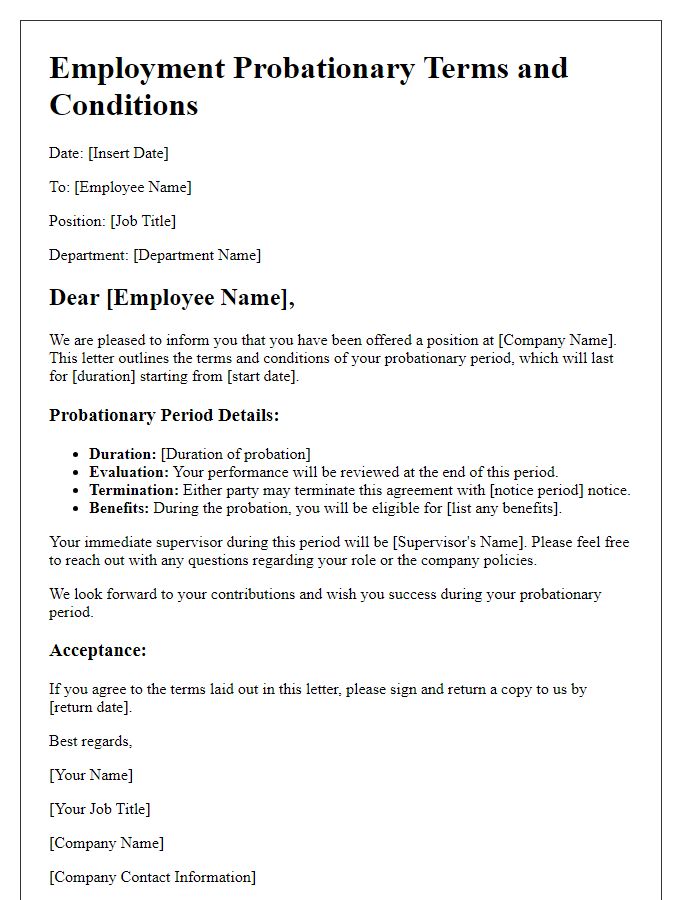
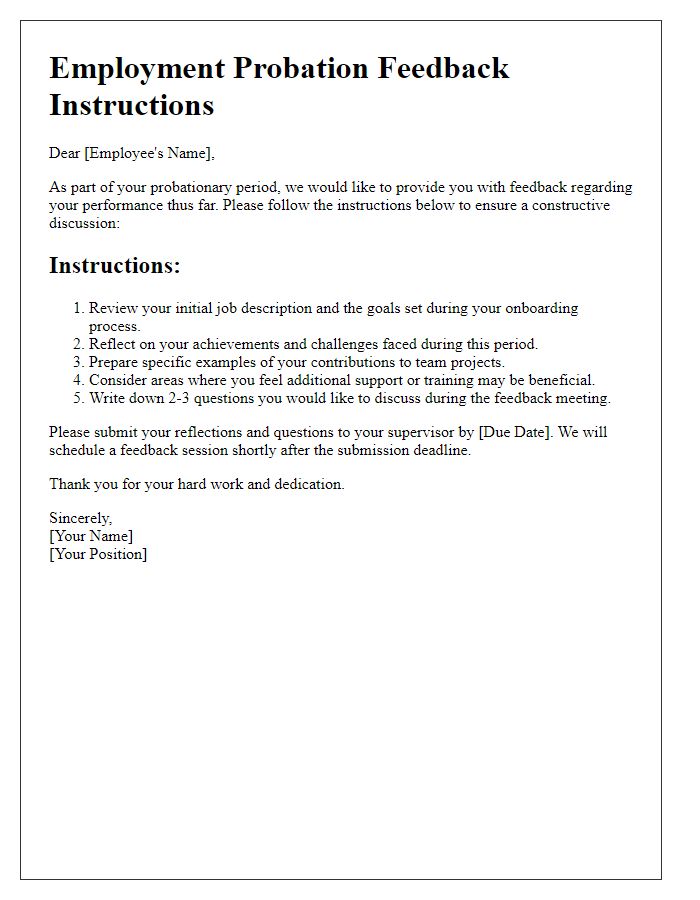
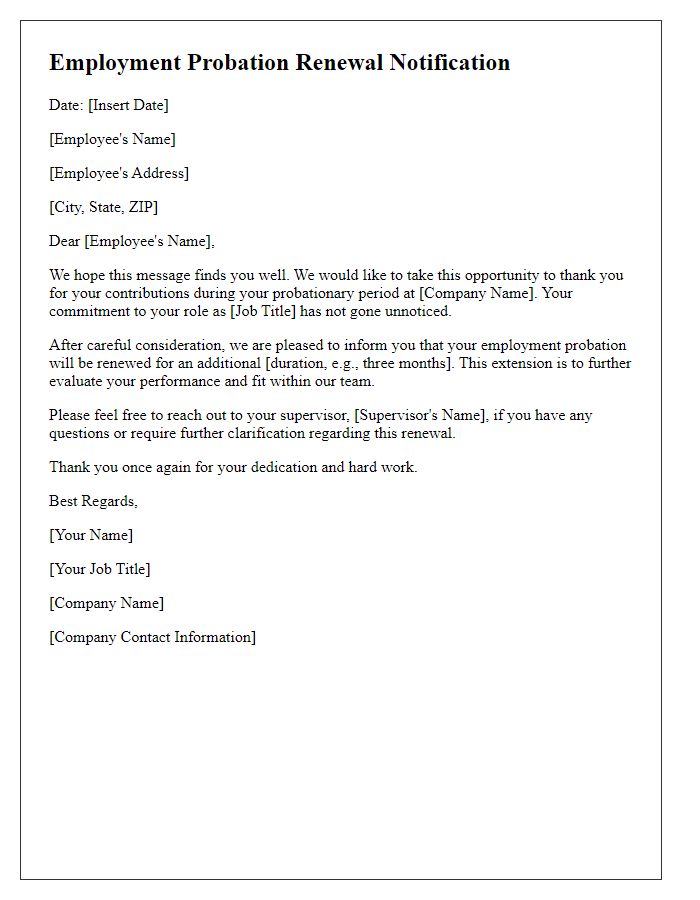
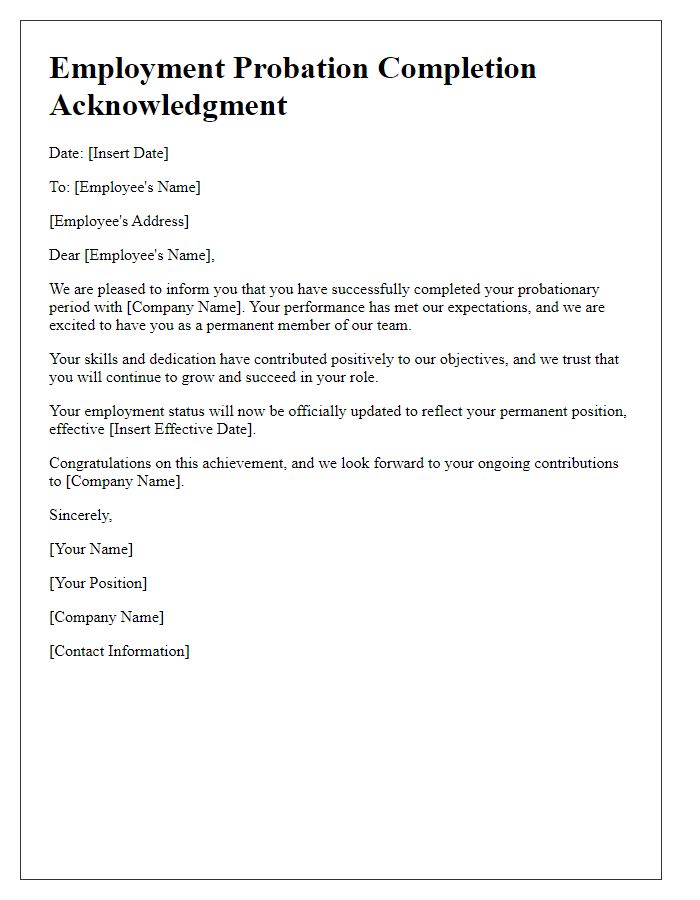
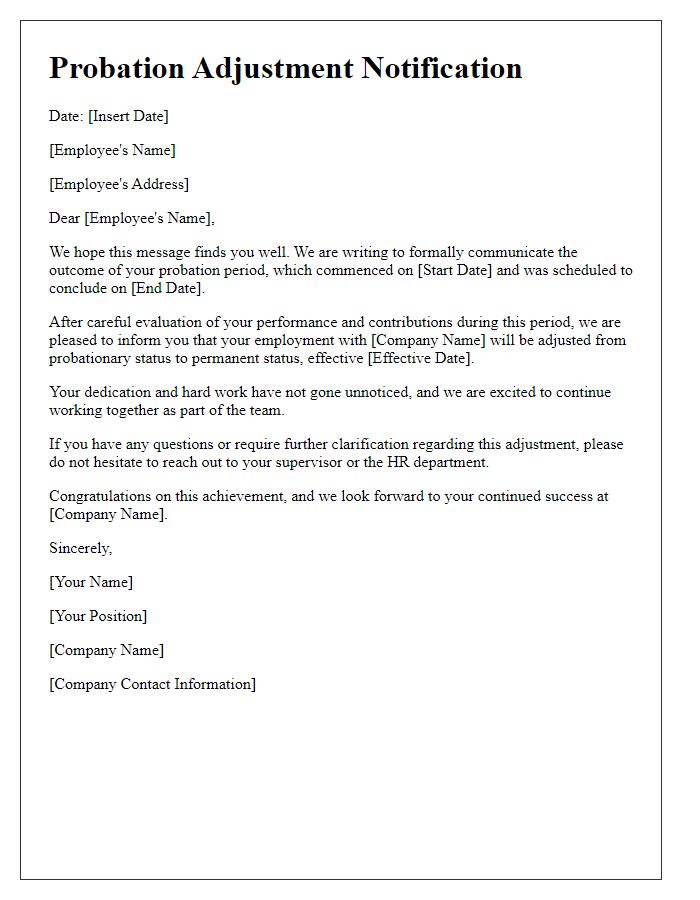


Comments